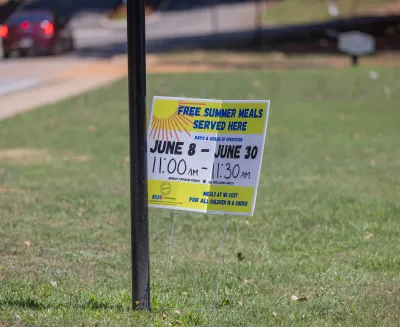Atlanta Business Chronicle Leadership Trust
When faced with limited investment capital, budding millennial investors need to make wise choices on where to spend their investment dollars next. Neighborhoods undergoing or soon to undergo revitalization should be a key area of focus. The challenge, however, is that these areas have likely been discovered by other investors. As more people spot opportunities, competition for affordable real estate intensifies. This calls for newer investors to apply some out-of-the-box thinking.
One great area for investment, in my experience, is mobile home parks. That's because these investments tend to provide an affordable price for the one commodity that is no longer being manufactured: land.
When you buy a single family or multitenant home, for example, you pay for the structure on the land in addition to the land itself. However, when you buy a mobile home park, typically you're mostly paying for the land - which, on a per unit or per parcel basis, becomes significantly cheaper.
The costs to maintain the structures on this land also tend to be more affordable. Instead of paying for tenant improvements and regular maintenance, mobile park owners typically pay for the upkeep of the land. Costs to maintain the mobile homes themselves are the homeowners' responsibility.
There are a few common pitfalls, however, that newer investors should watch out for when searching for mobile home investment opportunities.
Environmental hazards
Regardless of where the mobile home park is located - centrally or in the suburbs - I strongly recommend hiring qualified environmental geologists to complete an environmental assessment. Their expertise is needed to detect any contamination from ruptured pipelines, leaking underground storage tanks, oil spills or hazardous material.
They also usually have more familiarity with government databases to conduct historic research. Newsfeeds are splattered with their findings, which include abandoned meth labs and radioactive waste from nearby landfills. Don't let these findings scare you; use them as an opportunity to guide your investment dollars. Once these issues are remediated, the result will likely be a sizable return.
Tenant situations
As with any real estate investment involving existing tenants, you'll need to assess their ability to pay their rent consistently and on time. You might also consider hiring an on-site security team to help maintain the park. However, if your research suggests there is a tendency for violence to erupt, the park is not a worthwhile investment until there's a rigid screening process in place.
City planning
City planning can also work out in an investor's favor, especially in cases where the park includes vacant lots that the city would approve for development. In my experience, approval is very likely when there's a high demand for affordable housing, or if the land value already supersedes the park's cash flow value. In many cases, cities will purchase mobile home parks to redevelop as residential zones on which to build apartment buildings that can house more people.
Most mobile home park investors also recommend using municipal water systems instead of private systems. This can be more expensive at the outset, yet much easier to maintain and manage in the long run. You might find a noncity service park with its own septic tanks, water wells or sewage systems that run very efficiently and at lower costs, but I still believe it will pose a risk in the long run.
Regardless of how sizable the city's stake in these mobile home parks is, the need for low-income housing won't wither any time soon. According to the Manufactured Housing Institute, approximately 22 million Americans lived in mobile homes last year.
Mobile home parks often appear to be secluded in less obvious areas to maintain privacy and avoid the dust and disorder of a nearby city. That's why they are easy to overlook. A smart investor should scoop up these opportunities now because as the competition for cheap real estate and land intensifies, these gems won't be ignored much longer.













